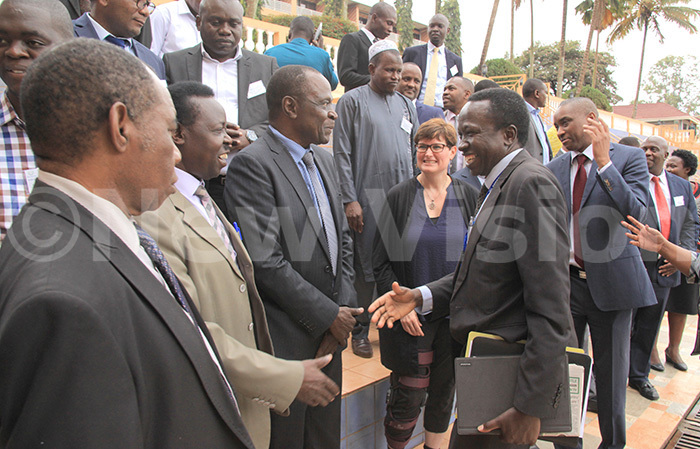African states plan radioactive waste management
Radioactive waste is generated not only by the nuclear power industry, but also by hospitals, universities and non-nuclear industries.
SAVING THE ENVIRONMENT
Representatives from 21 countries in Africa have converged in Kampala for a regional co-ordination meeting on strengthening radioactive waste management.
The summit organised by the Atomic Energy Council (AEC) in collaboration with the International Atomic Energy Agency (IAEA) is aimed at enabling African Member States to review the status of radioactive waste management, update national inventories and develop the work plans and implementation strategies for strengthening radioactive waste management.
Yesterday, while opening the five-day meeting at Hotel Africana, Honey Malinga, representing the minister of Energy and Mineral Development, said proper radioactive waste management is essential for a healthy environment.
"We should create awareness on proper radioactive waste management to ensure that both people and the environment are healthy and safe," Malinga said.
He noted that the ministry is developing specific objectives for radioactive waste management.
Radioactive waste is generated not only by the nuclear power industry, but also by hospitals, universities and non-nuclear industries. The waste requires proper collecting, sorting, treating, conditioning, storing and disposing radioactive it with utmost precaution to ensure safety of both the people and the environment within which they live.

PIC: Honey Malinga (holding documents), interacts with some of the delegates at Hotel Africana, Kampala. (Courtesy photo)
Noah Deogratius Luwalira, the chief executive officer, AEC said Uganda has made significant progress towards ensuring proper disposal of radioactive waste.
"We have developed regulatory guidelines on radioactive waste management and it is in its final stages of being reviewed by the IAC," said Luwalira.
Luwalira disclosed that despite the misconception and controversy surrounding the proposed construction of a radiation waste storage facility in Mukono, preparations are underway to have the facility set up by the end of next year.
"This facility will help in the safe storage of radioactive waste as it waits to be transported to a final destruction point, outside the country," Luwalira said. "The facility will be built to international standards and shall not pause any health threats to the people living near it as alleged."
Speaking at the meeting, Tamara Yankovich, a Radiation Protection specialist, said a safe storage plant will be useful in managing radioactive waste that is no longer in use, but potentially harmful if left exposed to both the environment and people.
"Some radioactive materials occur naturally and it necessitates to be stored away in a safe place such as the one that will be set up in Mukono," Yankovich said.
She noted that both the current and future generation should enjoy a generation free from radioactive materials.
The countries participating in the summit include; Algeria, Ghana, Cameroon, Chad, Cote Ivoire, Egypt, Ethiopia, Kenya, Madagascar, Mali, Mauritania, Morocco, Nigeria, Senegal, South Africa, Sudan, united republic of Tanzania, Zambia and Zimbabwe and Uganda.